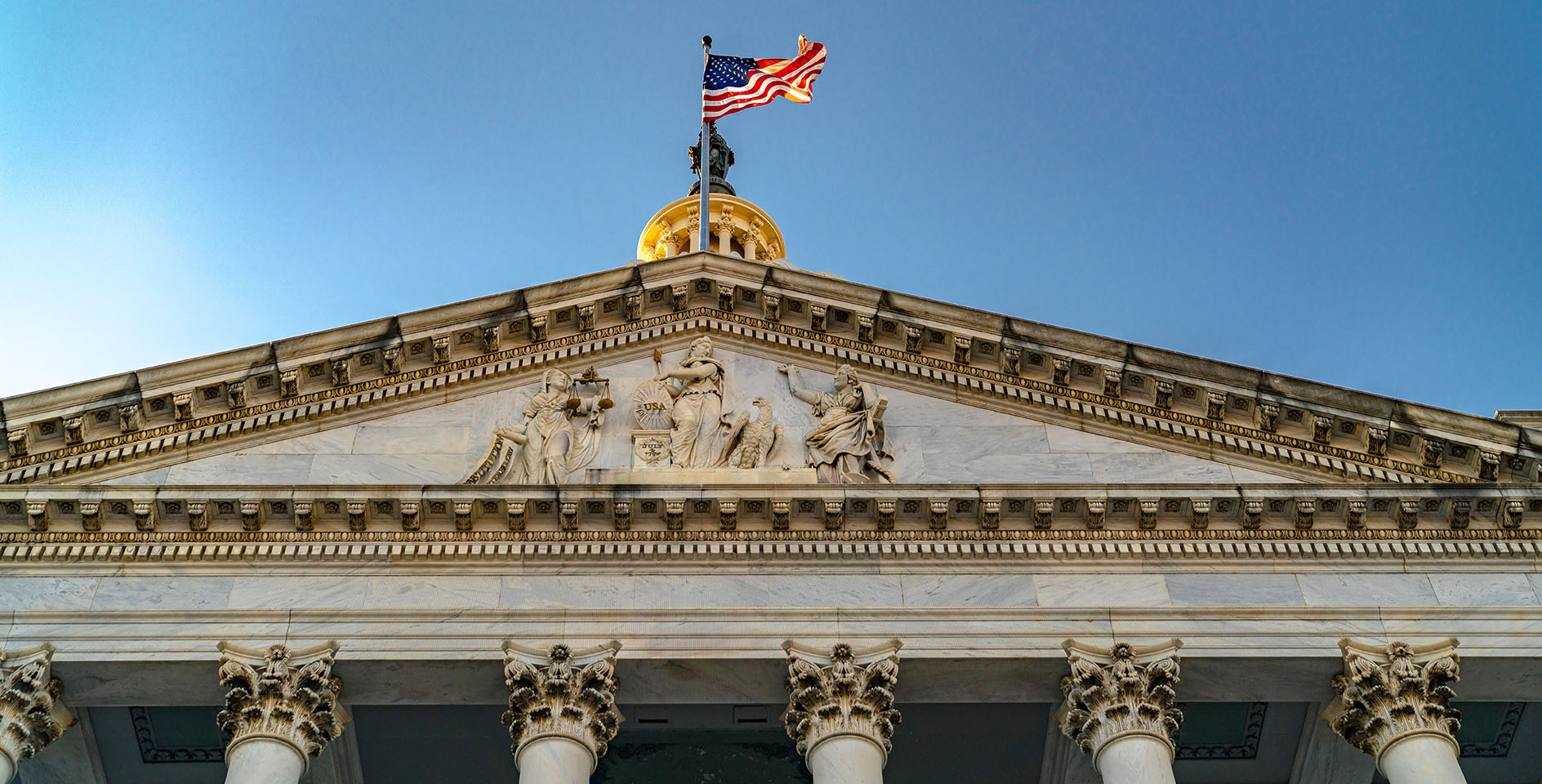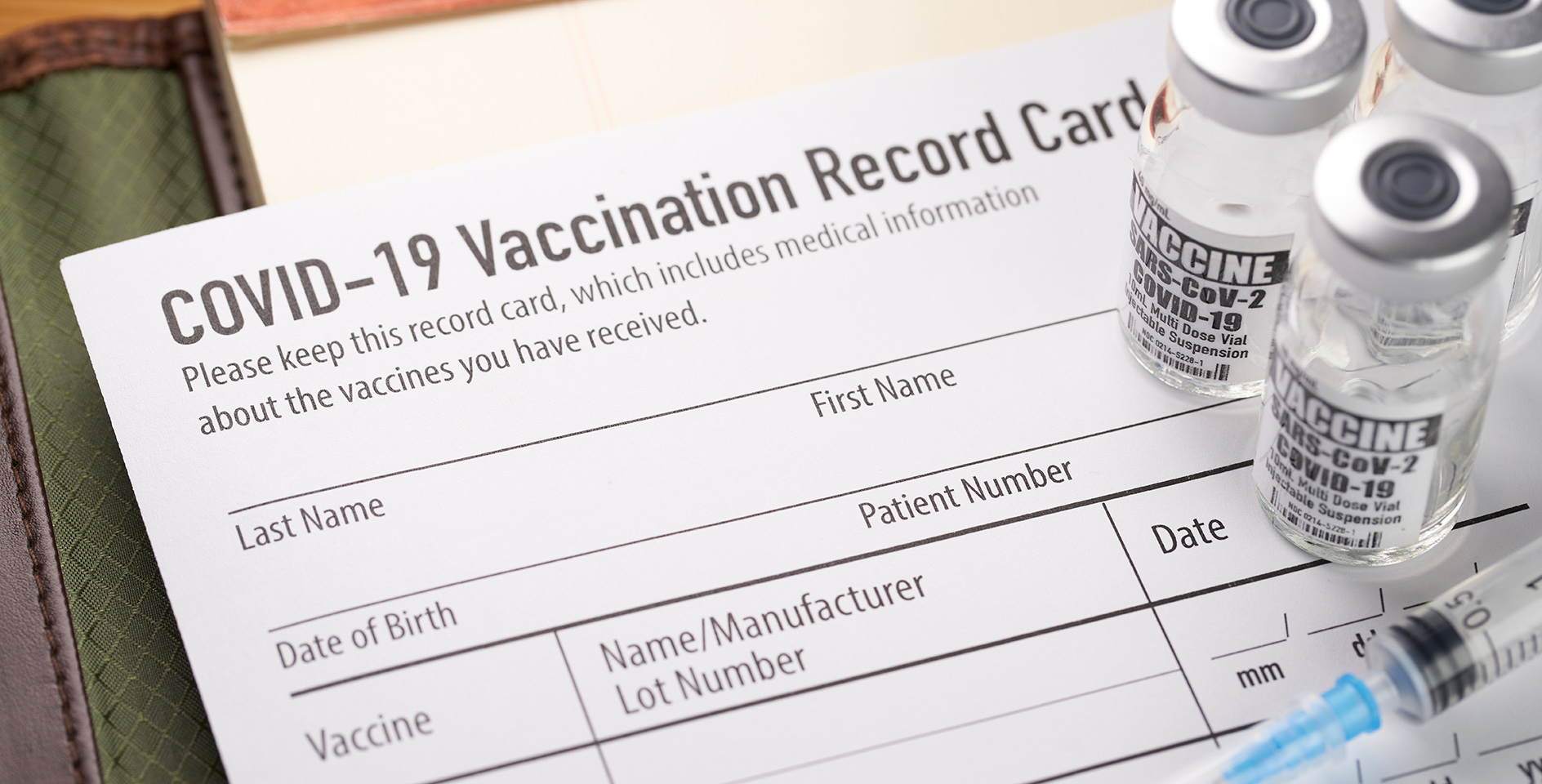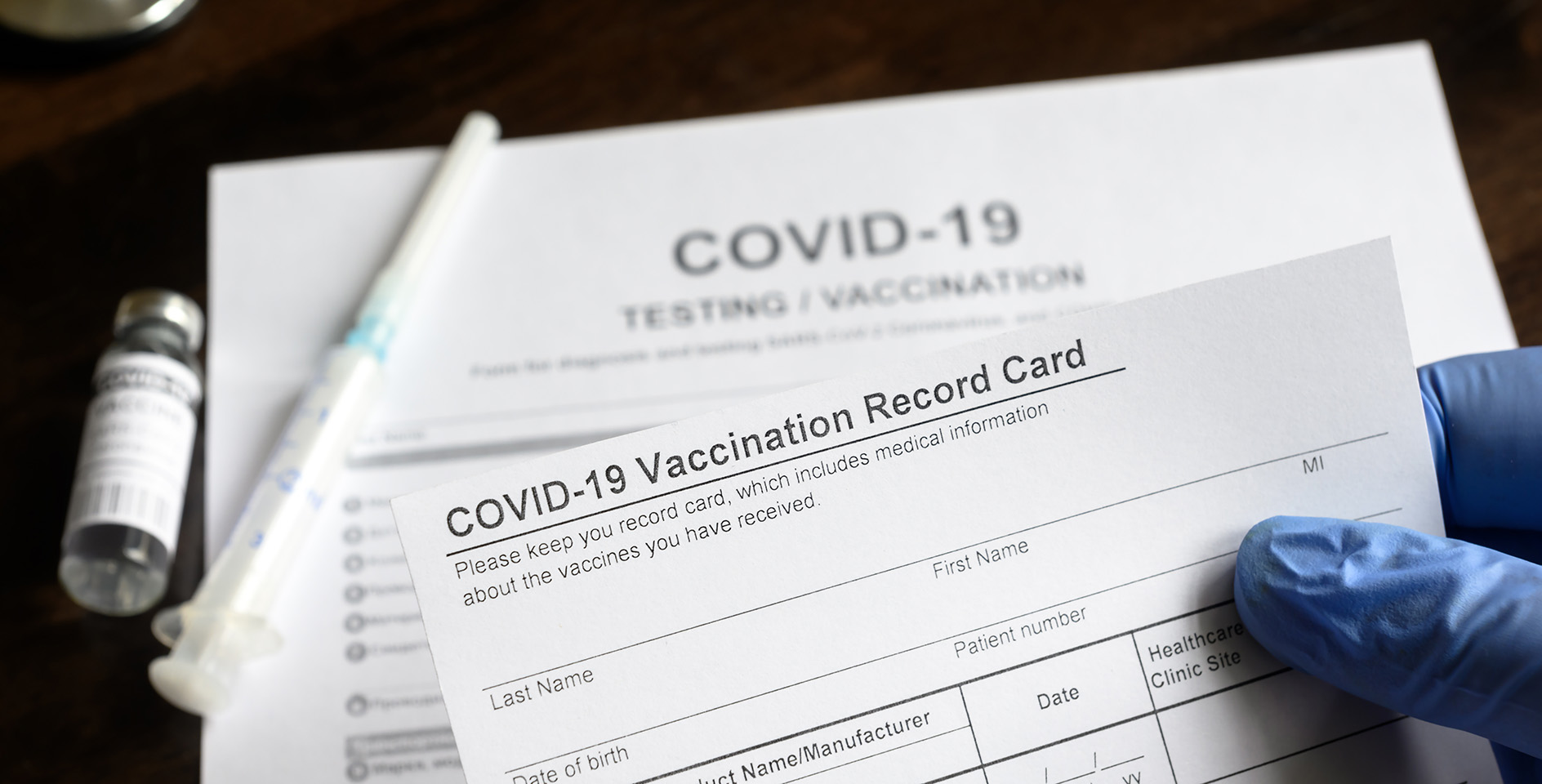Nearly two years after the start of the pandemic, the variant known as Omicron has led to a rapidly increasing number of new infections. It has also brought with it a deluge of news tied to COVID-19. To keep you up to date, here is a round-up of COVID-related news in three broad areas — treatments, mandates, and court challenges.
FDA approves new treatments
Within the past six weeks, the FDA issued an emergency use authorization for two new treatments for COVID-19.
The first treatment, authorized in late November, is an intravenous (IV) infusion of casirivimab and imdevimab. When administered together, they are used to treat mild to moderate COVID-19 in adults and pediatric patients (12 years of age or older and weighing at least 88 pounds) who have tested positive and are at high risk for progressing to a more severe condition. The infusion is also authorized for those who are 65 years of age or older or who have certain chronic medical conditions.
In clinical trials, the infusion of casirivimab and imdevimab was shown to reduce COVID-19-related hospitalization or emergency room visits in patients at high risk for disease progression within 28 days after treatment.
The Biden administration announced that it would purchase 20 treatment courses. President Biden said he was encouraged by the “promising data” from Pfizer and said the drug would “mark a significant step forward in our path out of the pandemic.”
The second treatment, authorized in late December, is Pfizer’s Paxlovid, an antibody pill that can be taken orally. This drug is also used to treat mild-to-moderate COVID-19 in adults and pediatric patients (12 years of age and older and weighing at least 88 pounds) who are at high risk for progression to severe COVID-19, including hospitalization or death. Paxlovid is available by prescription only and needs to be initiated as soon as possible after diagnosis of COVID-19 and within five days of symptom onset. It is not recommended in patients with severe kidney or severe liver impairment.
“Monoclonal antibodies target the spike protein on the outside of the virus and they need to be given as an injection or infusion,” said Dr. Ryan Bariola, infectious diseases director at the University of Pittsburgh Medical Center, “whereas the oral antivirals, they’re pills, they can be taken and target different parts of the virus lifecycle.”
Neither drug is considered a substitute for vaccinations and is not used for treatment in those requiring hospitalization due to severe or critical COVID-19.
Masks mandates resume while schools shut down
Centers for Disease Control and Prevention recently issued guidance that Americans who contract COVID-19 or have not been boosted and are exposed to the virus can return to normal life after five days if they wear a mask. They recommend that those who have been exposed and tested negative wear a well-fitting mask when around others at home and in public until 10 days after your last close contact with someone with COVID-19.
If a person tests positive but has no symptoms, the CDC recommends isolating for at least five days from the date of a positive test. For those who develop COVID-19 symptoms, the recommendation is to isolate for at least five days from the date the symptoms began (the date the symptoms started is day 0).
The recommendation by the CDC to wear masks has led some states and cities to maintain or reimpose mask mandates. Currently, eight states — California, Hawaii, Illinois, Nevada, New Mexico, New York, Oregon, and Washington — require most people to wear masks in indoor public places, whether or not they have been vaccinated against COVID-19. Washington, D.C., and Puerto Rico also have similar mandates.
Connecticut has an indoor mask mandate that applies to the unvaccinated, while Rhode Island requires masks for all large venues but gives smaller businesses leeway based on patrons’ vaccination status. Washington is the only state with an outdoor mask order, requiring face-covering at outside events attended by 500 or more people.
Eleven states have not imposed mandates at any point during the pandemic, and some, including Florida, Iowa, Montana, Tennessee, and Texas, have legislation or executive action to prevent local governments and school districts from doing so. (AARP has a complete state-by-state guide to face mask requirements.)
President Biden says he’s committed to keeping schools open amid the latest surge in COVID-19 cases. “We know that our kids can be safe when in school,” said the president after meeting with the White House COVID-19 response team. “That’s why I believe that schools should remain open.” Many governors and mayors are also pushing for in-person learning.
But many schools are closing because of a teacher shortage. A survey of K-12 school districts across the country found that 2,753 schools were closed in the week beginning Jan. 3. Most of the school closures involved classes going remote for the first one to two weeks of January.
As Joel Mathis points out, “In Miami, 10 percent of teachers are out sick — probably with COVID. In New York, about a third of the city’s students didn’t show up on Monday, and some of those who did couldn’t get breakfast because of a shortage of cafeteria workers. Similar problems are expected to pop up across the country in the coming days.”
Chicago officials also canceled classes for hundreds of thousands of public school students because the city’s teachers union voted overwhelmingly (73%) for remote education.
Court challenges to COVID-related mandates and rules
Last week, a federal judge in Texas issued a preliminary injunction blocking the Department of Defense (DoD) from punishing 35 members of the Navy who refused to be vaccinated against COVID-19 in compliance with the service’s vaccine mandate due to religious objections. The DoD issued a COVID-19 vaccine mandate for service members in August, and the Department of the Navy required all active-duty Navy personnel to be fully vaccinated against COVID-19 before Nov. 28 or face discipline.
In their lawsuit, the Navy Special Warfare servicemembers allege that the military’s mandatory vaccination policy violates their religious freedoms under the First Amendment and Religious Freedom Restoration Act.
“This Court does not make light of COVID-19’s impact on the military,” Judge Reed O’Connor writes in his order. “Collectively, our armed forces have lost 80 lives to COVID-19 over the course of the pandemic. But the question before the Court is not whether a public interest exists. Rather, this Court must address whether an injunction will disserve the public interest. An injunction does not disserve the public interest when it prevents constitutional deprivations.”
And today (Jan. 7), the U.S. Supreme Court will be hearing oral arguments on the legality of two federal COVID-19 vaccine mandates issued under the Biden administration. The justices will be considering four appeals — Biden et al. v. Missouri et al.; Becerra et al. v. Louisiana et al.; National Federation of Independent Business et al. v. Department of Labor et al.; and Ohio et al. v. Department of Labor et al. — which have been consolidated into two separate sets of oral arguments. (Of note, Southern Baptist Theological Seminary is a party in this first set of cases.)
The first set of consolidated cases concerns the enforceability of the Occupational Safety and Health Administration (OSHA) rule issued last November that requires employers with 100 or more employees to ensure each of their workers is fully vaccinated or tests for COVID-19 on a weekly basis. That rule was upheld by the 6th Circuit Court of Appeals.
The second set of consolidated cases concern a rule issued by the Centers for Medicare and Medicaid Services (CMS) last November that mandates staff working for Medicare or Medicaid certified providers be fully vaccinated against COVID-19, with narrow exceptions for religious and medical reasons.









